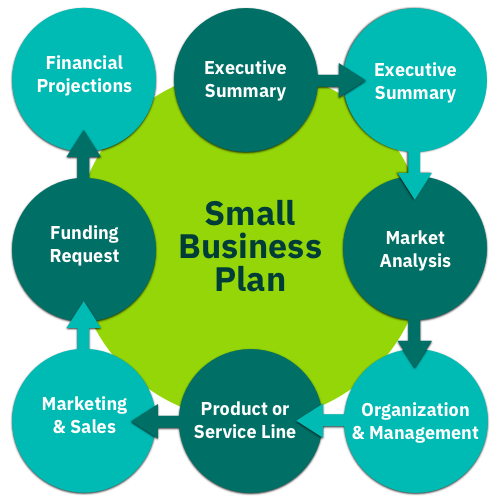In today’s competitive and rapidly changing business landscape, companies require agile financial strategies and precise management to ensure stability and growth. Due to budget constraints, employing a full-time Chief Financial Officer (CFO) might not be feasible for many small to mid-sized businesses. This is where a Fractional CFO comes into play, offering essential financial leadership on a flexible, part-time basis. A fractional CFO can be the game-changing resource that propels your business toward financial clarity, stability, and success.
What is a Fractional CFO?

A fractional CFO is a highly experienced financial expert who provides part-time or project-based CFO services. Unlike a full-time CFO, who may work exclusively for one company, a fractional CFO works with multiple businesses, offering tailored financial guidance without a permanent hire’s long-term commitment or cost. This approach allows enterprises to leverage top-tier financial expertise as needed without the expense and logistical complexity of hiring a full-time executive.
Why Do Businesses Need a Fractional CFO?
For small and medium-sized enterprises, cash flow management, accurate financial forecasting, and strategic financial planning are crucial to long-term success. However, these businesses often need more resources for a full-time CFO. A fractional CFO fills this gap by:
- Enhancing Financial Strategy: A fractional CFO brings strategic insight to help business leaders make informed financial decisions. Their experience in diverse industries enables them to implement economic models that improve efficiency and profitability.
- Improving Cash Flow Management: Managing cash flow effectively is essential for maintaining operations and supporting growth. A fractional CFO helps identify cash flow trends, ensures smooth transactions, and recommends strategies for effective cash management.
- Providing Financial Reporting and Analysis: Regular and accurate financial reporting is critical for business oversight. A fractional CFO gives businesses the tools and insights they need to understand their financial health, including cash flow, income statements, and balance sheets.
- Assisting in Fundraising and Capital Structuring: Whether you’re looking for debt or equity financing, a fractional CFO guides your fundraising efforts by identifying the best sources of capital, preparing financial documentation, and presenting your business’s economic vision to potential investors.
Key Responsibilities of a Fractional CFO
1. Financial Planning and Analysis (FP&A)

- Fractional CFOs conduct in-depth financial analyses, helping businesses understand revenue streams, expenses, and potential growth areas.
They also support budgeting, enabling companies to forecast future cash flows and make financially sound decisions. This process includes:
- Analysing Financial Statements: To assess financial health and evaluate the company’s income, balance sheets, and cash flow statements.
- Developing Financial Models: Creating customised financial models to project revenue, profit margins, and cash flows.
- Budgeting and Forecasting: Establish realistic budgets and forecast income to ensure efficient cash management and avoid shortfalls.
2. Cash Flow Management
- A strong cash flow is essential for growth, and a fractional CFO offers expertise in managing and forecasting cash flow to keep your business on a solid footing.
They analyse income, expenses, and payment cycles, identifying gaps and opportunities to improve cash flow efficiency. Key strategies include:
- Optimising Accounts Receivable: Ensuring timely collections and reducing overdue payments.
- Managing Accounts Payable: Balancing payment schedules to align with cash flow needs.
- Streamlining Inventory Management: Reducing unnecessary inventory costs and freeing up cash for other operational needs.
3. Financial Strategy and Risk Management
- With a broad understanding of market trends and industry-specific risks, fractional CFOs provide strategic advice on investment, capital structure, and risk management.
They work with executives to build sustainable financial plans that align with the company’s goals. Core areas include:
- Developing Long-Term Financial Goals: Setting actionable financial goals that align with the company’s growth strategy.
- Evaluating Investment Opportunities: Analyzing potential investments to determine which offer the highest return with the least risk.
- Mitigating Financial Risks: Identifying and managing financial risks that could impact the company’s stability.
4. Fundraising and Investor Relations

- When companies seek outside funding, a fractional CFO offers valuable guidance and expertise.
They manage the fundraising process from start to finish, ensuring financial documentation is in order and positioning the business favourably for potential investors. Duties include:
- Preparing Financial Projections: Creating accurate financial forecasts demonstrating potential profitability to investors.
- Building Investor Relations: Managing relationships with current and potential investors, providing regular updates, and ensuring clear communication.
- Structuring Capital: Advising on debt and equity options to ensure the company’s financial structure supports future growth.
How a Fractional CFO Can Propel Business Growth

A fractional CFO provides expertise that can transform a business, helping it navigate complex financial challenges confidently. Here’s how a fractional CFO can contribute to business growth:
- Enhanced Financial Decision-Making: With access to expert financial insights, business leaders can make better-informed decisions, minimise risks, and optimise resource allocation.
- Improved Financial Visibility: Regular financial reporting and analytics provide a clearer view of a company’s financial health, empowering leaders to make proactive adjustments.
- Cost Savings and Efficiency: A fractional CFO can help streamline operations by identifying wasteful expenditures and inefficient processes, ultimately improving profit margins.
When Should You Hire a Fractional CFO?

The right time to bring on a fractional CFO varies by business. However, some clear indicators suggest the need for expert financial guidance:
- Rapid Growth: As your company grows, managing finances becomes more complex. A fractional CFO helps manage growth sustainably.
- Complex Financial Challenges: If you’re facing challenges like cash flow problems, high operating costs, or debt management, a fractional CFO can provide solutions.
- Preparation for Fundraising: When seeking investment, a fractional CFO ensures you’re prepared with accurate financial forecasts and reporting.
- Lack of Financial Expertise: Small businesses without in-house financial expertise benefit significantly from the guidance of a fractional CFO.
Choosing the Right Fractional CFO for Your Business

Selecting the right fractional CFO is crucial to maximising their impact. Here’s what to consider:
- Experience in Your Industry: Industry-specific experience ensures your fractional CFO understands your market’s unique challenges and opportunities.
- Proven Track Record: Look for a CFO with a history of helping businesses achieve financial stability and growth.
- Flexible Engagement Model: A good fractional CFO offers flexible services tailored to your needs, whether for short-term projects or ongoing support.
Final Thoughts on the Benefits of a Fractional CFO
Hiring a fractional CFO offers small to mid-sized businesses access to world-class financial expertise without the commitment of a full-time position. Whether you need strategic financial planning, cash flow management, or investor relations support, a fractional CFO can elevate your business, enabling you to make confident, informed financial decisions. As the economic landscape grows increasingly complex, leveraging the services of a fractional CFO may be one of the most impactful decisions you make for your company’s future.








